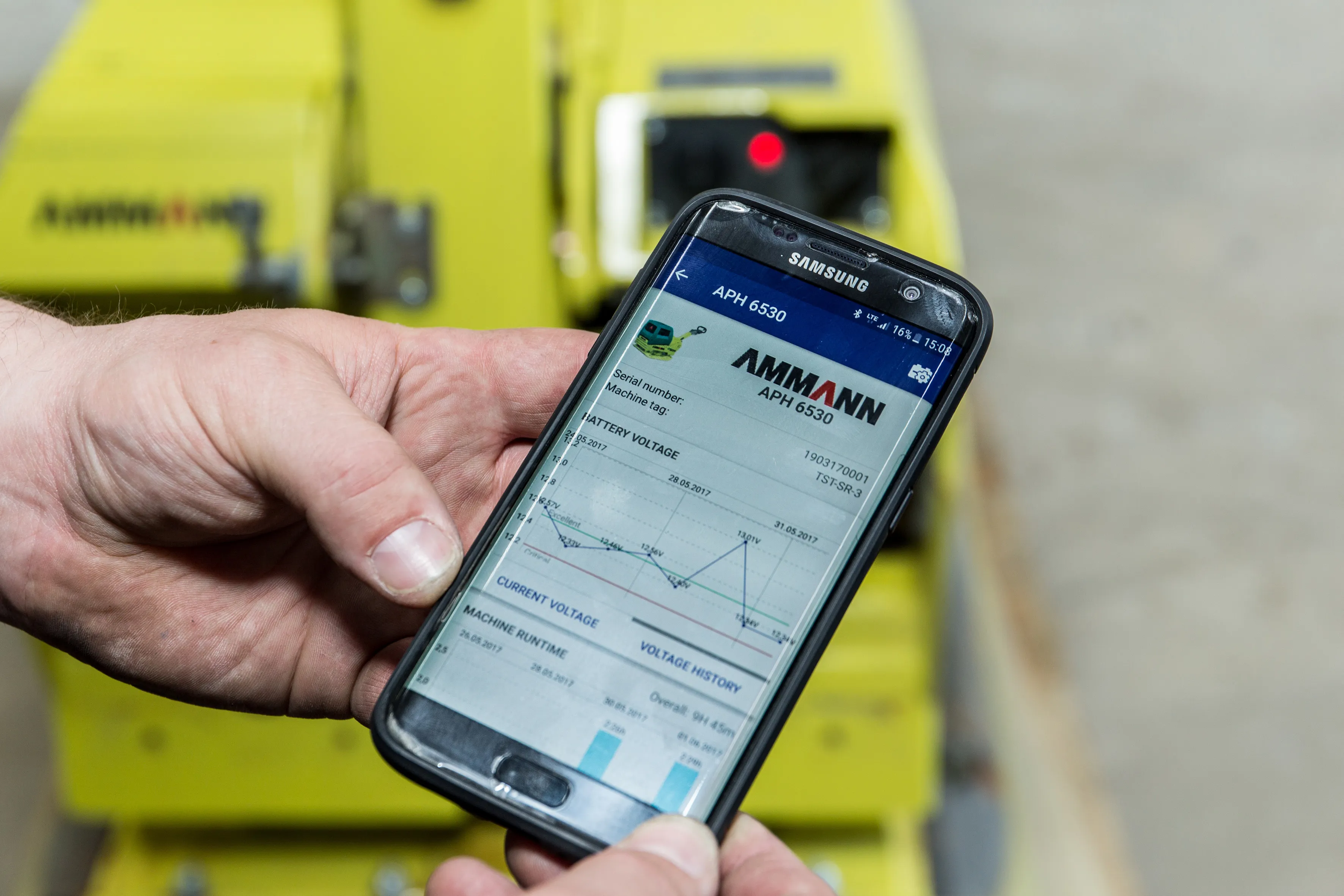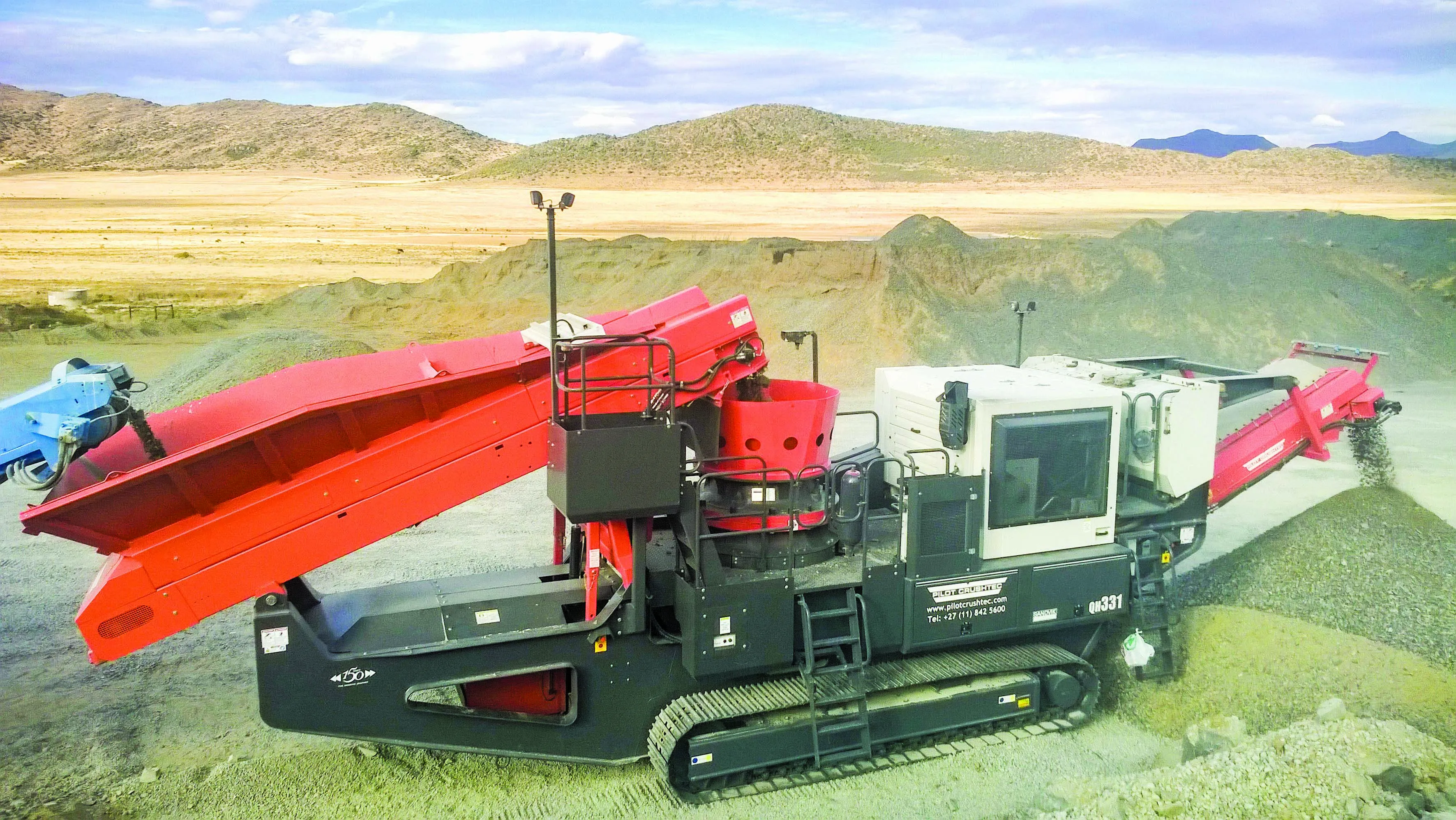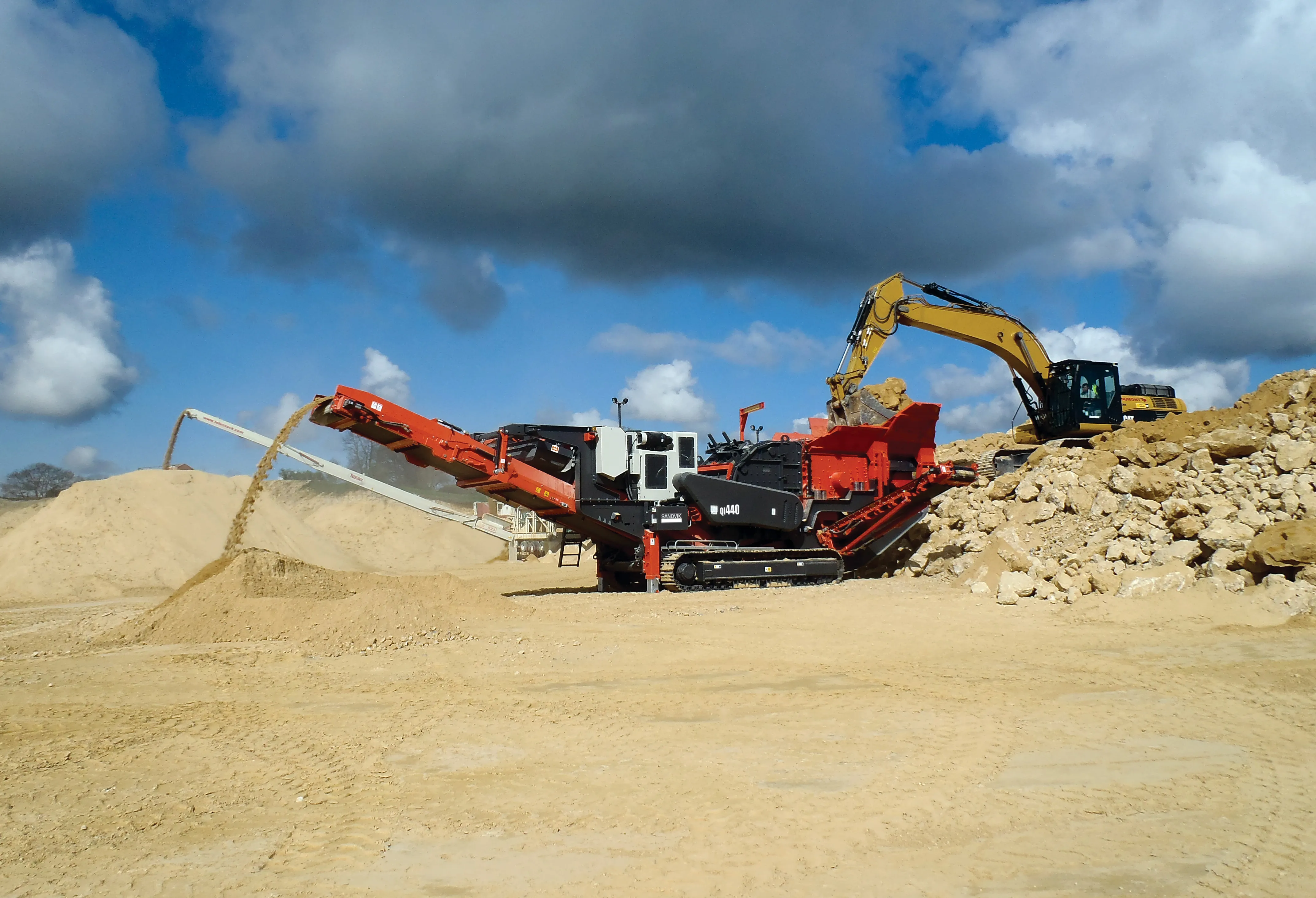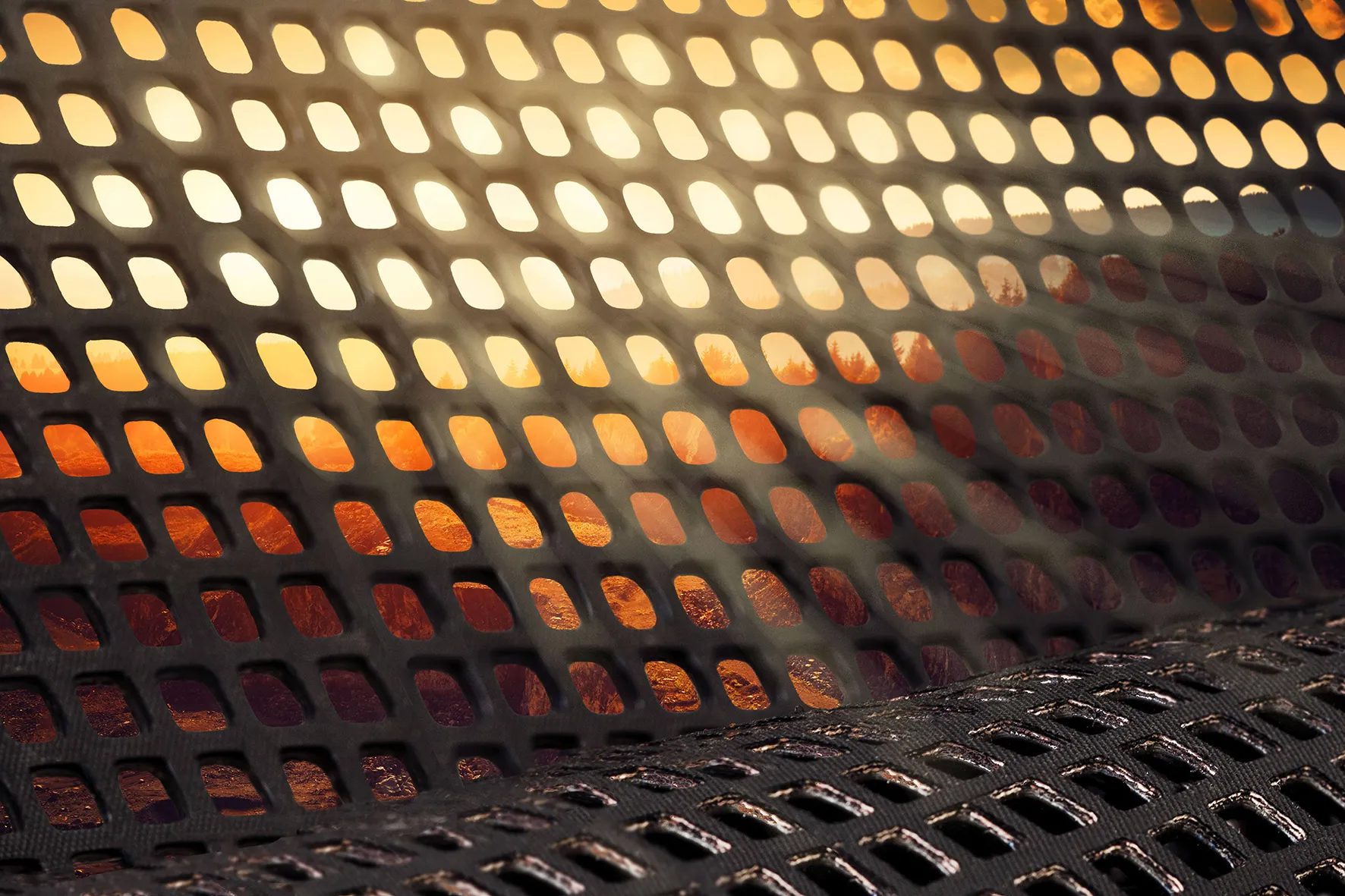Two of Sandvik Construction’s (SC) highways management systems will be used to remove snow and ice on roads across Scandanavia this winter. Svevia, the main provider of winter highway maintenance in Sweden and Destia, the former Finland state road maintenance company, and maintenance crews at Arlanda airport in the Swedish capital Stockholm, will be deploying Sandvik System 2000 and Sandvik’s composite HX900 wear protection. System 2000 is said by SC to be an innovative road grading system that bolts onto y
October 4, 2012
Read time: 3 mins
Two of 2403 Sandvik Construction’s (SC) highways management systems will be used to remove snow and ice on roads across Scandanavia this winter.
6535 Svevia, the main provider of winter highway maintenance in Sweden and 6661 Destia, the former Finland state road maintenance company, and maintenance crews at Arlanda airport in the Swedish capital Stockholm, will be deploying Sandvik System 2000 and Sandvik’s composite HX900 wear protection.
System 2000 is said by SC to be an innovative road grading system that bolts onto your motor grader in place of a conventional blade. It uses rotating, replaceable tungsten carbide tools as a cutting edge, and is said to be an easy to use system for ice and snow removal, gravel reclamation, gravel maintenance, oil road reclamation, asphalt planning, and removal of potholes and washboards on dirt and gravel roads.
Lower grading costs due to reduced time spent on changing blades and longer working life compared to blades with lower carbon grade, are said by SC to be key advantages of System 2000.
Fitted with an innovative, patent pending, square washer said to further increase productivity, the System 2000’s square washers provide support and stability to the tool with an extruded cone that fits neatly in the bore of the product’s boards. The new square washers are said to pre-compress the retainers for easy installation.
They are also claimed to enhance rotation and protect the board by serving as a replaceable ‘armour plate’ wear surface. The square washers do not rotate, thereby minimising frictional wear between the washer and the board.
SC’s composite HX900 is an innovative wear protection said to combine the durability of the carbide with the fracture toughness of ductile iron. This is said to result in a material that is suitable for the most demanding wear applications.
According to SC, HX900 has an intensity which is on par with solid carbide and fracture toughness corresponding to 80-90% of pure iron. It can be manufactured in many shapes and sizes and has a wide range of applications, including road maintenance.
The casting is carried out at a high temperature to permit formation of a metallurgic bond between the two constituent materials. SC recommends that the bonding zone should be about 0.5mm to avoid excessive dissolve of the cemented carbide, which affects the cemented carbide wear characteristics.
In casting, SC said it is essential to control the flow and pressure of the melt in order to minimise the temperature deviations of the casting.
Once prototypes are developed, it is said to be important to work with flow simulations to find the right design of gating systems.
A SC spokeserpson said: “Snowploughing on roads and highways is often undertaken at high speed. Ploughing exposes base asphalt, subjecting the blades and shoes to heavy abrasive and impact wear. HX900 wear plates last about 20 times longer than hardened steel ones and are in line with Sandvik's strategy to help customers reduce production costs.”
SC said a recent wear test of its snowplough blades that was made by Svevia for the Swedish road federation showed that the HX900 is considerably more wear resistant than conventional steel. The HX900 snowplough is said by SC to cut about 12 times longer than similar products made of hardened steel. The Svevia test was carried out on asphalt road with side plough blades and diagonal plough blades and, in both cases, the HX900 blades were said by SC to produce superior results.
System 2000 is said by SC to be an innovative road grading system that bolts onto your motor grader in place of a conventional blade. It uses rotating, replaceable tungsten carbide tools as a cutting edge, and is said to be an easy to use system for ice and snow removal, gravel reclamation, gravel maintenance, oil road reclamation, asphalt planning, and removal of potholes and washboards on dirt and gravel roads.
Lower grading costs due to reduced time spent on changing blades and longer working life compared to blades with lower carbon grade, are said by SC to be key advantages of System 2000.
Fitted with an innovative, patent pending, square washer said to further increase productivity, the System 2000’s square washers provide support and stability to the tool with an extruded cone that fits neatly in the bore of the product’s boards. The new square washers are said to pre-compress the retainers for easy installation.
They are also claimed to enhance rotation and protect the board by serving as a replaceable ‘armour plate’ wear surface. The square washers do not rotate, thereby minimising frictional wear between the washer and the board.
SC’s composite HX900 is an innovative wear protection said to combine the durability of the carbide with the fracture toughness of ductile iron. This is said to result in a material that is suitable for the most demanding wear applications.
According to SC, HX900 has an intensity which is on par with solid carbide and fracture toughness corresponding to 80-90% of pure iron. It can be manufactured in many shapes and sizes and has a wide range of applications, including road maintenance.
The casting is carried out at a high temperature to permit formation of a metallurgic bond between the two constituent materials. SC recommends that the bonding zone should be about 0.5mm to avoid excessive dissolve of the cemented carbide, which affects the cemented carbide wear characteristics.
In casting, SC said it is essential to control the flow and pressure of the melt in order to minimise the temperature deviations of the casting.
Once prototypes are developed, it is said to be important to work with flow simulations to find the right design of gating systems.
A SC spokeserpson said: “Snowploughing on roads and highways is often undertaken at high speed. Ploughing exposes base asphalt, subjecting the blades and shoes to heavy abrasive and impact wear. HX900 wear plates last about 20 times longer than hardened steel ones and are in line with Sandvik's strategy to help customers reduce production costs.”
SC said a recent wear test of its snowplough blades that was made by Svevia for the Swedish road federation showed that the HX900 is considerably more wear resistant than conventional steel. The HX900 snowplough is said by SC to cut about 12 times longer than similar products made of hardened steel. The Svevia test was carried out on asphalt road with side plough blades and diagonal plough blades and, in both cases, the HX900 blades were said by SC to produce superior results.









